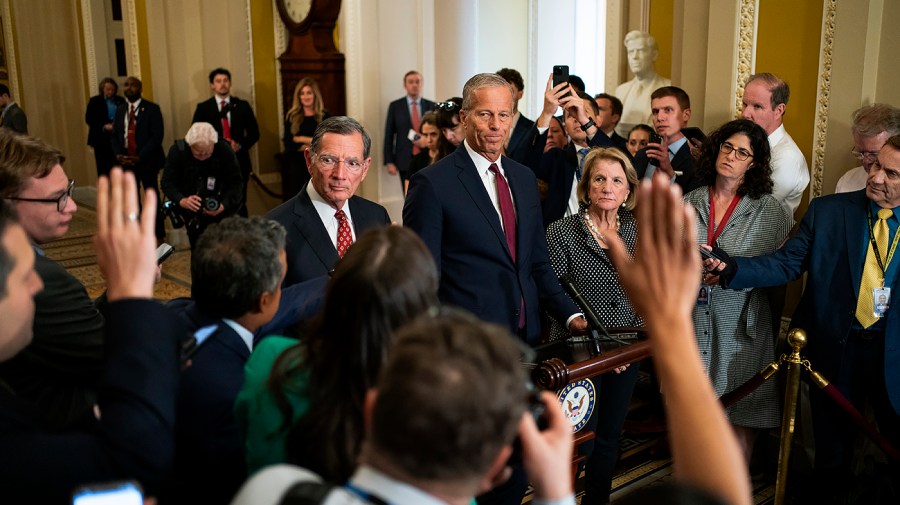Senate Republicans are gearing up for a demanding session as Congress reconvenes on September 5, 2023, after a month-long recess. They face a packed agenda that includes urgent funding issues and the confirmation of President Donald Trump’s nominees. With only weeks remaining before a potential government shutdown on September 30, the Senate GOP, led by Majority Leader John Thune, must navigate a series of politically sensitive topics.
The return to Washington comes with bipartisan priorities such as finalizing the National Defense Authorization Act (NDAA) and ensuring government funding. However, the GOP’s push to change Senate rules to facilitate the confirmation of Trump’s nominees adds complexity to their agenda. A Senate Republican commented, “He’s going to have a full plate,” as the party prepares for a challenging political landscape.
Democratic leaders are pushing for immediate discussions. Senate Minority Leader Chuck Schumer and House Minority Leader Hakeem Jeffries have called for a “four corners” meeting to address the pressing need for a government funding agreement. They emphasize the urgency of preventing a lapse in government operations and addressing the ongoing healthcare crisis exacerbated by recent Republican actions.
The situation intensified late last week when the White House announced an attempt to reclaim $4.9 billion in foreign aid funds without congressional approval. This unprecedented move, which has not occurred in nearly half a century, has provoked backlash from Democrats and increased the likelihood of a government shutdown. Schumer criticized the GOP’s approach, stating that they lack a plan to avoid an unnecessary shutdown and accusing them of being unwilling to collaborate on solutions.
Efforts to pass a stopgap funding bill are anticipated as both chambers of Congress continue to negotiate a full-year spending package. As of now, the Senate has passed only three of the twelve appropriations bills. The House has passed two, and significant differences remain between their respective proposals.
Senator Susan Collins, Chair of the Senate Appropriations Committee, expressed her opposition to the White House’s rescission attempt, labeling it “unlawful.” She emphasized the importance of adhering to the appropriations process and stated, “Instead of this attempt to undermine the law, the appropriate way is to identify ways to reduce excessive spending through the bipartisan, annual appropriations process.”
Adding to the complications, all of Congress will be in recess during the final week of September for the Jewish high holidays, reducing the critical time available for negotiations before the funding deadline.
In addition to funding issues, the Senate GOP will prioritize processing a backlog of Trump nominees. Republicans are frustrated that they left for recess without a bipartisan agreement to expedite the confirmation of these nominees. Only one of Trump’s nominees, Secretary of State Marco Rubio, has managed to avoid a full filibuster. The GOP is advocating for changes to Senate rules that would allow for quicker confirmation of lower-level positions.
Senators James Lankford and Katie Britt are leading a working group to explore options for reforming the confirmation process. Lankford described the current situation as “intolerable,” stressing the need to ensure that presidential nominees can be confirmed efficiently.
As the Senate prepares to tackle these pressing issues, there are also discussions around a bipartisan sanctions package targeting Russia. Following recent missile attacks on Kyiv, Senator Lindsey Graham has intensified calls for implementing tariffs on nations that continue to support Russia’s military efforts.
Despite the numerous challenges, there is optimism regarding the NDAA, which is on track for a vote in the coming weeks. The upcoming session promises to be pivotal as the Senate GOP confronts a range of significant political hurdles while seeking to maintain government operations and advance their legislative agenda.
